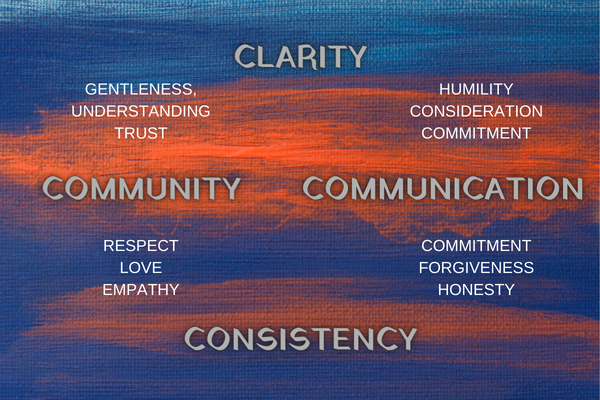
Walking the Parenting Tightrope: From Authoritarian Demands to Authoritative Dialogue
Ah, parenthood—where the line between maintaining order and unleashing a mini-revolution is as thin as your patience after asking your child to pick up their toys for the seventh time today. We’ve all been there, haven’t we? Your mini-me refuses to cooperate, and you’re teetering on the edge of morphing into General Parent, ready to lay down the law with an iron fist—or perhaps an iron timeout chair.
It’s tempting—oh, so tempting—to go full-on authoritarian in these moments. After all, something has to give, and it won’t be your meticulously curated adult sanity. But before you don the metaphorical military uniform, pause and consider: is a drill sergeant really what your family needs, or is there a more balanced approach that doesn’t involve psychological push-ups?
Stick around if you’ve found yourself leaning towards the authoritarian ‘my way or the highway’ style, especially in high-stress moments. This discussion delves into the long-term effects of authoritarian versus authoritative parenting. The latter may provide the peaceful yet structured family life you want to create. And let’s be honest—who doesn’t want to transition from family dictator to wise family coach?

Why Aggressive Parenting Falls Short and How Authoritative Parenting Can Save the Day
Parenting is one of life’s most complex yet rewarding responsibilities. However, parents often lean towards aggressive techniques, mainly under stress, societal pressures, or ineffective coping mechanisms.
While this approach may work in the short term, it can cause lasting harm. This blog post will explore why aggressive parenting is counterproductive and present a healthier alternative: authoritative parenting.
The Immediate Gains but Long-term Pains of Aggressive Parenting
Aggressive parenting can give the illusion of control. Children might obey instantly, but what is the cost of this instant compliance? Aggressive parenting creates a harmful cycle that can lead children in two undesirable directions. They either become perpetual victims—submissive to authority figures—or become aggressors themselves, having learned this behavior from their role models at home.
Understanding that this approach doesn’t set children up for success is critical. Aggressive parenting may temporarily solve behavioral problems but fails to equip children with the emotional and cognitive tools they need to thrive in adulthood.
The Pitfalls of Power Struggles
One issue with aggressive tactics is that they create a power struggle rather than teach children how to behave appropriately. Instead of learning how to make good decisions or manage their emotions, children learn to avoid getting caught or fight fire with fire. This not only backfires in the home setting but leaves them vulnerable to making poor choices when they step out into the world, precisely the situation parents had hoped to avoid.
Be a Coach, Not a Dictator: The Beauty of Authoritative Parenting
I’ve long advocated for authoritative parenting, combining firm boundaries with emotional warmth. In an authoritative household, parents set clear expectations but also provide room for children to make mistakes and learn from them. When kids inevitably stumble, they are met with understanding and coaching rather than harsh punishment.
The authoritative approach sends a powerful message to children: “I believe in you.” It empowers them to develop into independent, self-reliant individuals equipped to face life’s complexities. It provides a secure foundation, enabling them to become responsible adults who can establish healthy relationships and contribute positively to society.
The Fine Line Between Authoritative and Authoritarian
It’s essential to distinguish between being “authoritative” and “authoritarian.” The latter resembles a dictatorship—compliance is enforced through fear and intimidation, not through a loving and constructive environment. This parenting style fosters obedience but stifles creativity, independence, and emotional growth.
Parenting in today’s world, filled with social media, peer pressure, and numerous external influences, is undoubtedly challenging. However, falling into the trap of aggression and harsh punishment is not the answer. Neither is going in the other direction and being overly permissive without boundaries. Instead, the authoritative approach offers a balanced, effective method for raising children who are well-prepared to navigate the intricacies of modern life.
Aligning Family Values: Authoritative Parenting With The Four C's

Becoming an effective, authoritative parent starts with clearly identifying and articulating your family values. These values serve as the compass by which you navigate the intricate landscape of child-rearing, and it’s crucial to have them well-defined. An excellent framework that can help your family articulate and live out these values is the Four C’s of Successful Families, as described by Joseph Michael: Clarity, Communication, Consistency, and Community.
Clarity
Before you can guide your children effectively, you must know what virtues and values you hold dear. Clarity enables you to set well-defined boundaries that align with those values, making it easier for children to understand the ‘why’ behind the rules.
Communication
Open dialogues about family values can reinforce their importance and give them a lived sense of reality. Good communication builds trust and encourages emotional intelligence, which is foundational for an authoritative household.
Consistency
Implementing your family values requires consistency in both word and deed. Children are more likely to adopt virtues such as honesty, respect, or kindness when they see these values consistently reflected in family rules and their parents’ behavior.
Community
The value of community within the family and outside cannot be overstated. Shared family activities that reflect your values cement community and belonging. This social framework is essential for nurturing emotionally secure and socially competent children.
Integrating the Four C’s into your family life elevates your authoritative parenting style. It instills your cherished values, effectively bringing out the virtues you wish to see in your children. As you strive to prepare your children for the complexities of the modern world, let these Four C’s guide you in creating a balanced, value-centered household that serves as the cornerstone for their emotional and moral development.
Embedding the Four C’s into your family life is a transformative journey, but it doesn’t have to be one you take alone. If you’re eager to align your family values with effective parenting techniques, consider taking the next step by working directly with Joseph Michael. As an expert in guiding families to success, he offers personalized coaching sessions that will walk you through the Four C’s framework in depth, allowing you to tailor these principles to your family’s unique needs. Trust me, the insights you’ll gain can be the game-changer you’ve been looking for in your parenting journey.
So why wait? Opt for a brighter, more harmonious family future today. Reach out to Joseph Michael and let him guide you through mastering the art of authoritative parenting enriched by the Four C’s. After all, your family is your most precious investment; ensure its success by giving it the focused attention and expertise it deserves.
I invite you to sign up for our newsletter. It is a great way to get the Virtue of the Month and tips on relationships, parenting, and self-care. In addition, you’ll be the first to know about upcoming classes for successful families.
To sign up, visit the “Newsletter” section here on the website. Enter your email address, and you’ll receive our newsletter in your inbox on Wednesdays. I appreciate your interest in bringing out the best in your children and yourself. We look forward to keeping you informed through our newsletter!







